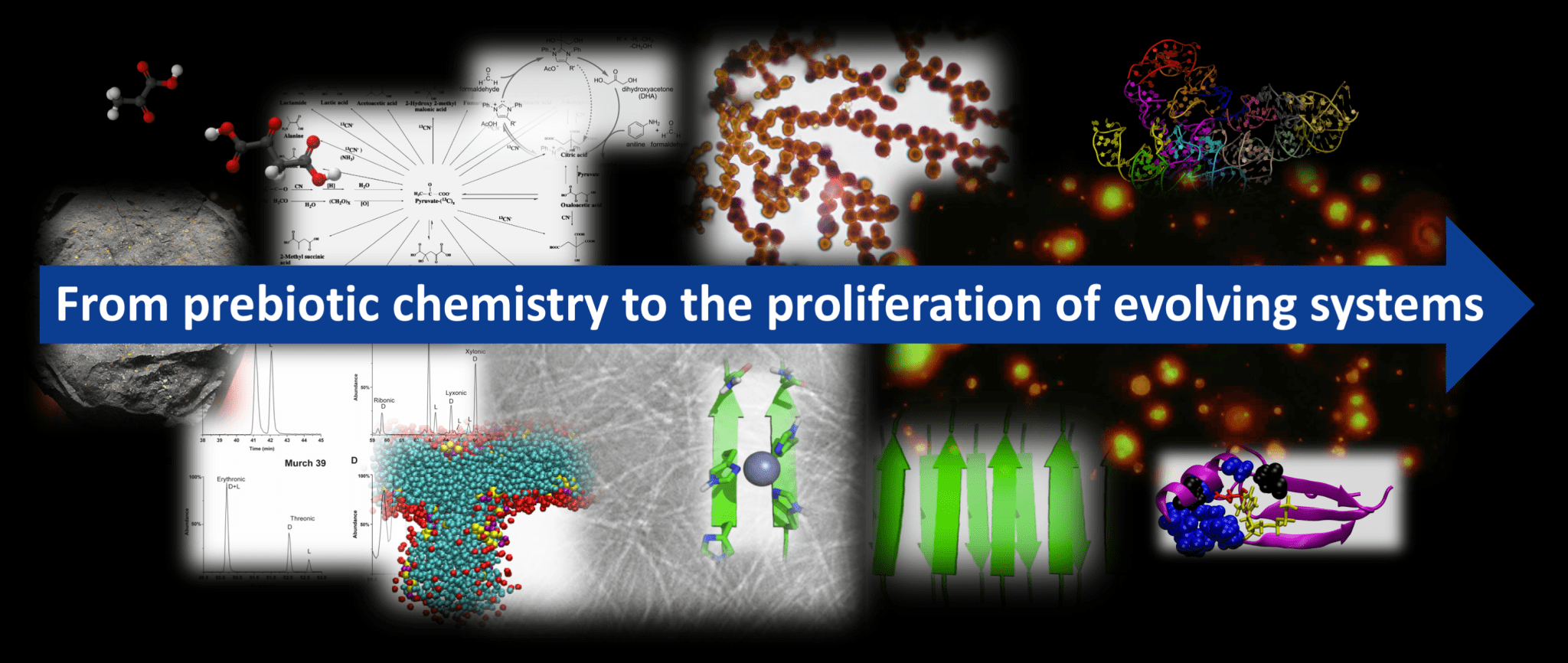Systems Chemistry
Metabolic systems are based on an intricate network of small molecules that sustain the biomass and energy flow of cells. While many of these metabolic small molecules have been demonstrated by prebiotic syntheses or shown to have cosmochemical relevance, their functional incorporation into a proto-metabolic network remains a mystery. We are interested in identifying the thermodynamic drivers and abiotic reactions between and among sugars, keto acids and amino acids that could have initiated the development of prebiotic chemical systems capable of molecular evolution. Since sustainability and evolution of the network depends on how the small molecules benefit and alter the chemical system, we are interested in how a chemical system could spontaneously incorporate the production of polymers via the activation of network monomer constituents.
Recent work by CEL scientists in systems chemistry
- Milshteyn, D., Cooper, G., & Deamer, D. (2019). Chemiosmotic energy for primitive cellular life: Proton gradients are generated across lipid membranes by redox reactions coupled to meteoritic quinones. Scientific reports, 9(1), 1-12. pdf
- Kaddi, C. D., Bennett, R. V., Paine, M. R. L., Banks, M. D., Weber, A. L., Fernández, F. M. (2016) DetectTLC: Automated reaction mixture screening utilizing quantitative mass spectrometry image features. Journal of The American Society for Mass Spectrometry 27: 359-365. pdf
- Clairmont, R. M., Bommarius, A. S., & Weber, A. L. (2015). Imidazolium Catalysts Formed by an Iterative Synthetic Process as a Model System for Chemical Evolution. Journal of Molecular Evolution, 81(1-2), 1-9.
























